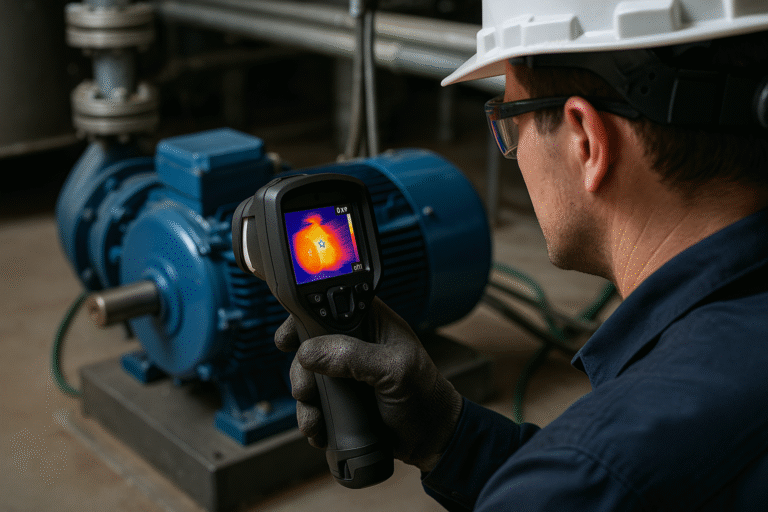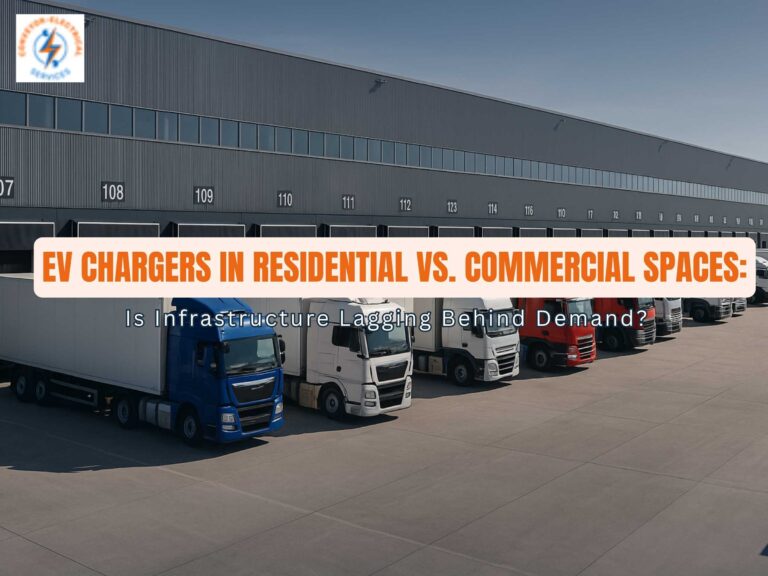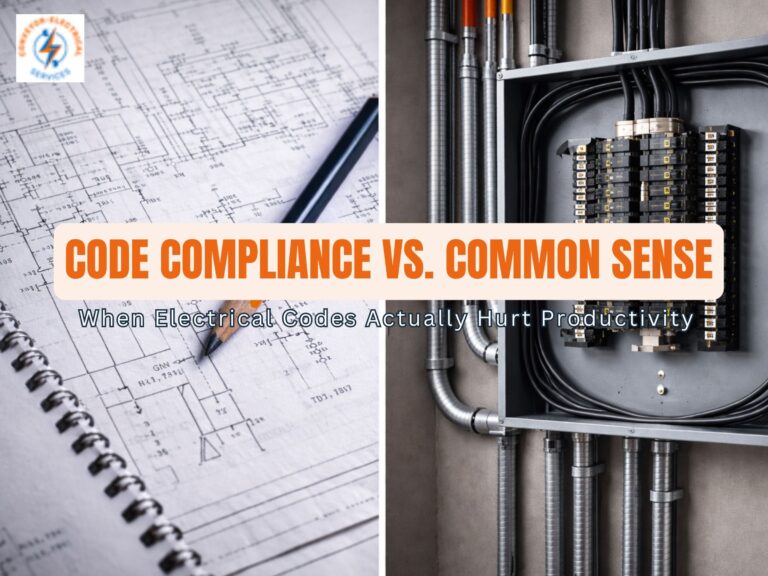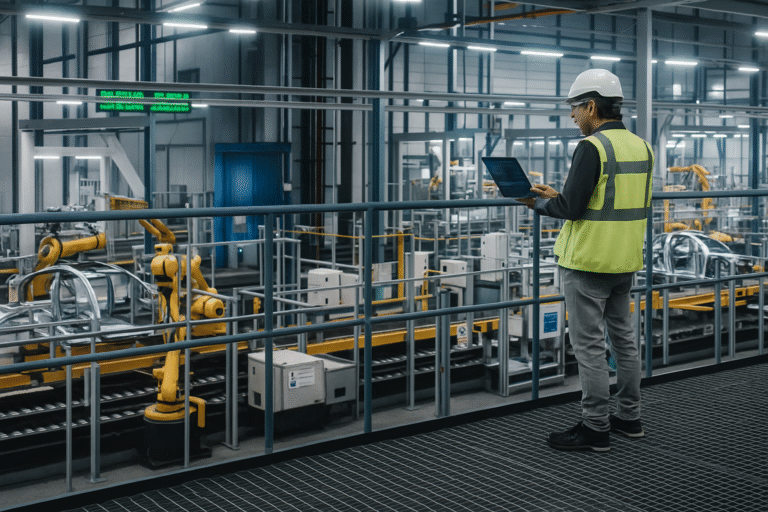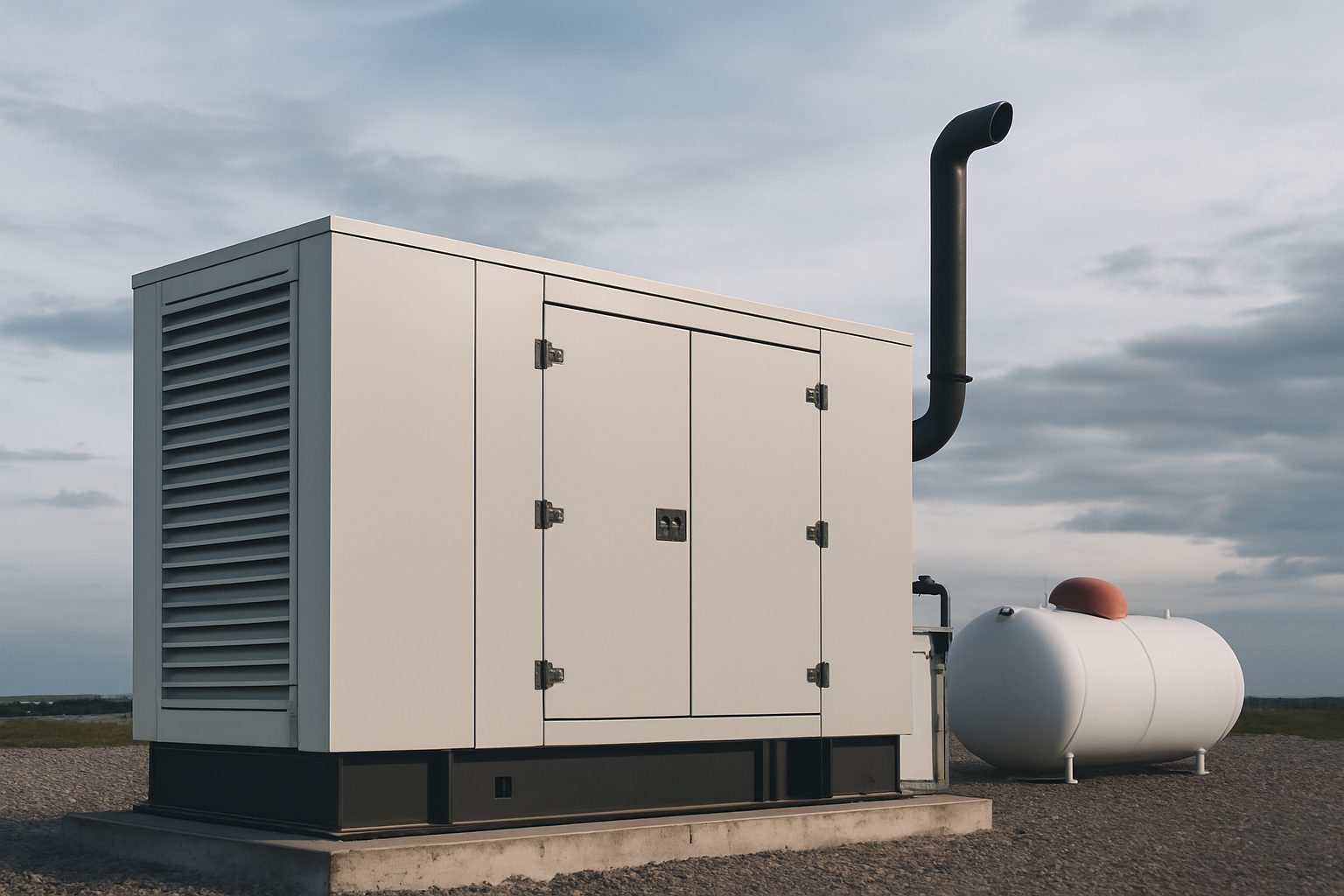
Let’s be real: no one thinks about backup generators until the lights go out. It’s one of those things we know we should plan for but never quite get around to until it’s too late. If you run a warehouse, factory, or any kind of industrial facility, this isn’t just about staying comfortable during a blackout. It’s about protecting your operations, your equipment, your people, and your bottom line.
So grab a coffee, and let’s have an honest conversation about why backup generators are an essential lifeline.
Power Outages Happen More Often Than You Think
Let’s start with the obvious: power grids aren’t as reliable as they used to be. Between severe weather events, increased energy demands, and aging infrastructure, blackouts and brownouts are becoming more frequent. And while a short power blip might just be an inconvenience for a household, for an industrial facility? It can be a logistical and financial nightmare. Think about it. One moment, your machines are running, conveyors are humming, and your team is packing orders. The next? Silence. Darkness. Chaos.
The Real Cost of Downtime
Here’s something not enough people talk about: downtime doesn’t just cost you in labor and output. It can destroy equipment, damage inventory, and make clients question your reliability. A single outage could cost thousands, if not tens of thousands, depending on the size of your operation. Let’s break it down:
Lost revenue: Every minute your operation is down, you’re not fulfilling orders or hitting quotas.
Damaged equipment: Sudden power loss or surges can fry your systems. And repairs? They’re not cheap.
Safety hazards: Emergency lights might fail. Temperature-controlled inventory might spoil. Forklifts stop mid-run.
Reputation damage: Clients don’t always care why your order was delayed. They just remember that it was.
So What Exactly Does a Backup Generator Do?
A backup generator is a system that automatically kicks in when your main power goes out. Depending on how it’s set up, it can keep your entire facility running or just the critical systems you choose. It’s your safety net and best insurance policy. Your silent partner that stays on standby, 24/7. And it doesn’t just start up randomly. These systems are designed to sense power loss and activate within seconds, often so seamlessly that your team won’t even miss a beat.
But Not All Generators Are Created Equal
This is where it gets important: residential generators are not built for commercial loads. Industrial and warehouse facilities need commercial-grade backup systems designed for higher voltages, larger square footage, and continuous operation under stress. We’re talking about systems that can handle HVAC units, conveyor belts, refrigeration systems, heavy machinery, and massive lighting networks. That’s why companies like CES (Conveyor Electrical Services) offer custom generator solutions. No two facilities are the same, and neither are their power needs.
Here’s What a Good Generator Setup Includes
If you’re planning to install a backup generator, you’ll need more than just a unit from the hardware store. A proper industrial generator setup should include:
- Power Load Assessment: How much of your facility needs to stay on during an outage? All of it? Just key equipment? Understanding your load is step one.
- Generator Sizing: This is crucial. If your generator is too small, it’ll fail. Too large, and you’re wasting money on fuel and overcapacity.
- Transfer Switches: Automatic Transfer Switches (ATS) detect power loss and automatically transfer the load to your generator. When power returns, it switches back.
- Fuel Source: Most commercial generators run on diesel or natural gas. The right choice depends on local codes, your building, and how long you need backup power to last.
- Installation & Testing: Installing a generator isn’t just about plugging it in. It requires licensed electricians, permits, inspections, and thorough testing under load.
And Let’s Not Forget Maintenance
Generators need maintenance. Even if you install the best system in the world, it’s useless if it fails during an emergency. Think of it like an oil change for your car, only this car might be the only thing keeping your business running during a storm. That’s why CES offers generator maintenance plans, which include:
Regular inspections
Battery and fluid checks
Load bank testing
Emergency callout response
Common Issues Why People Don’t Get Generators (And Why They Don’t Hold Up)
Let’s be honest, a lot of business owners hesitate to install generators for one of these reasons:
“It’s too expensive.”
Not compared to the cost of a multi-day shutdown. A generator pays for itself the first time it saves your inventory, your machines, or your contract.
“We’ve never had a power issue before.”
Cool. You’ve also never needed your fire extinguisher, but you still keep one, right? Power outages don’t give you a heads-up.
“It’s too complicated.”
That’s what we’re here for. Companies like CES handle everything from load calculation to permits to ongoing maintenance.
So, Do You Really Need a Backup Generator?
If your facility can afford to be offline for hours or days, maybe not. But if you’re in warehousing, logistics, manufacturing, cold storage, or production, then yes. A generator isn’t a luxury, it’s a non-negotiable. You insure your building. You insure your equipment. Why wouldn’t you protect your power? Don’t wait until the next blackout to start thinking about backup power.
Let’s Wrap This Up
Power outages are real, and they’re getting worse.
Downtime costs more than you think.
A commercial backup generator gives you peace of mind, safety, and operational continuity.
Maintenance matters just as much as installation.
CES can help you every step of the way, from planning to installation to 24/7 support.
Ready to Power Up Your Facility?
Conveyor Electrical Services specializes in industrial-grade generator solutions for warehouses, factories, and commercial buildings. Our team will help you choose, size, install, and maintain a system that keeps you running, no matter what’s happening outside. Let’s talk about your backup plan. Contact CES today to schedule a consultation.

